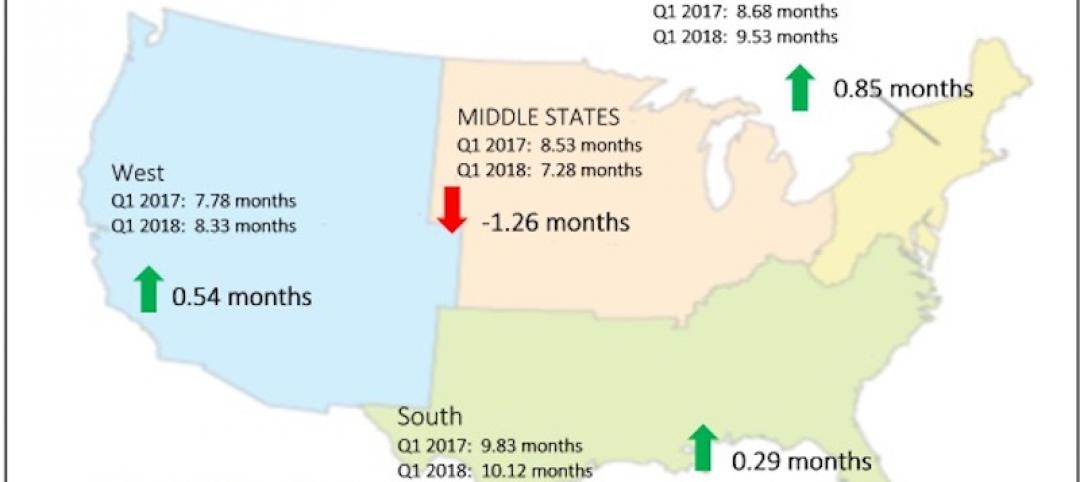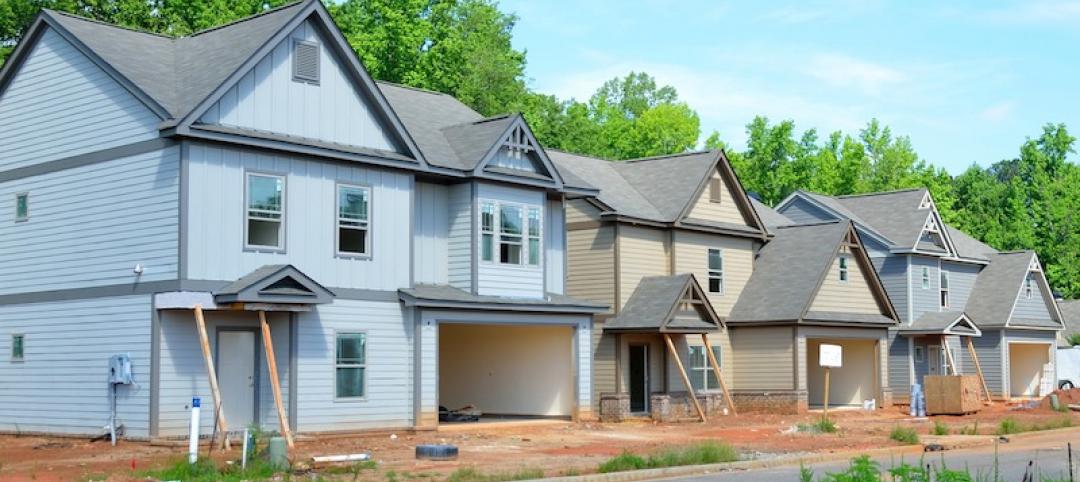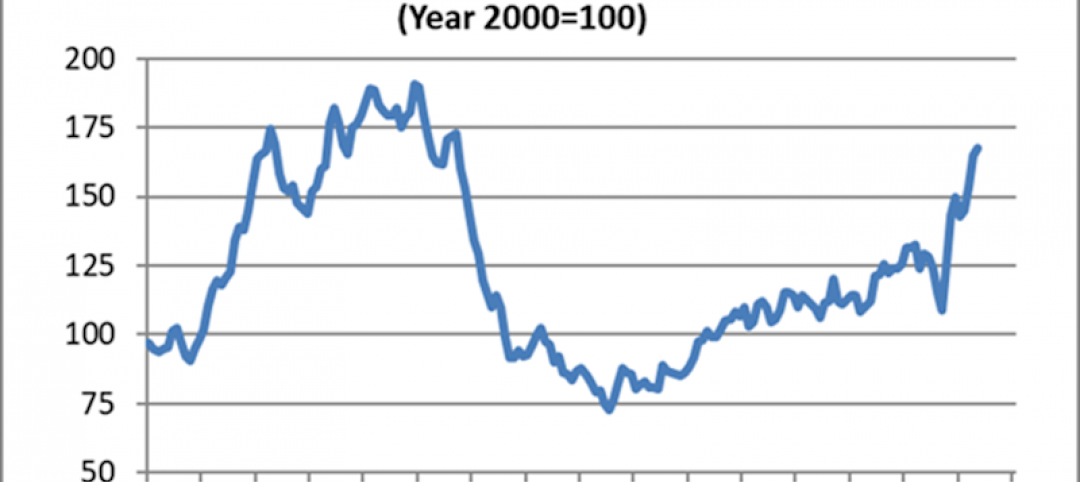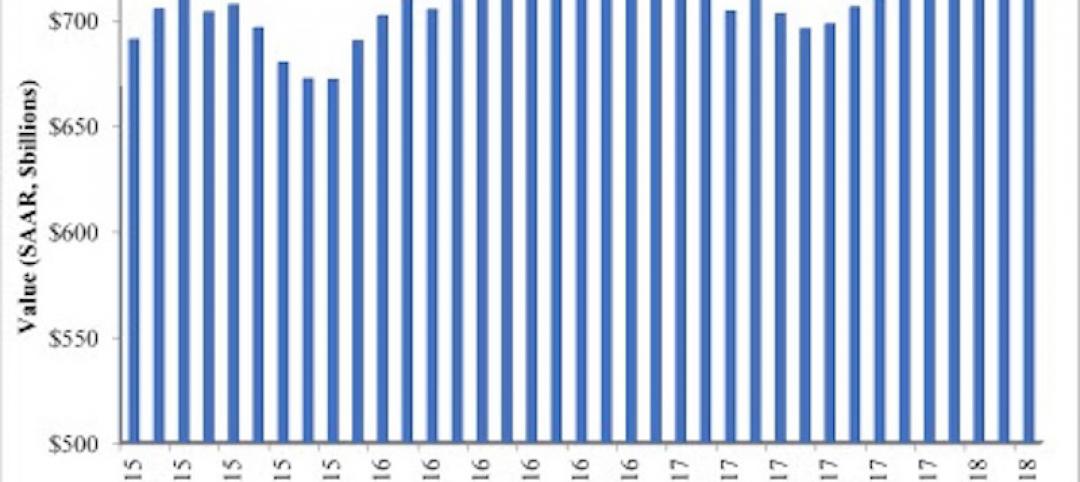Nonresidential construction spending fell to a two-year low in March as contractors struggled with slumping demand for most project types and growing shortages of materials, transport, and workers, according to an analysis of new federal construction spending data by the Associated General Contractors of America. Officials with the association said project cancellations and widespread supply chain problems are hindering the industry’s recovery.
“Every major category of private nonresidential projects has declined over the past year, while public construction spending is also deteriorating rapidly,” said Ken Simonson, the association’s chief economist. “Unfortunately, the widespread and growing backlogs for key materials and shortages of trucking and rail services to deliver goods mean that even projects that are underway are likely to take longer to complete.”
Construction spending in March totaled $1.51 trillion at a seasonally adjusted annual rate, an increase of 0.8% from the pace in February and 5.3% higher than in March 2020. However, the year-over-year gain was limited to residential construction, Simonson noted. That segment jumped 1.7% for the month and 23% year-over-year. Meanwhile, combined private and public nonresidential spending declined 1.1% from February—the fourth consecutive monthly decrease—and 7.4% over 12 months.
Private nonresidential construction spending fell 0.9% from February to March and 9.1% since March 2020, with year-over-year decreases in all 11 subsegments. The largest private nonresidential category, power construction, retreated 8.3% year-over-year and 0.4% from February to March. Among the other large private nonresidential project types, commercial construction—comprising retail, warehouse and farm structures—slumped 8.8% year-over-year and 0.5% for the month. Manufacturing construction tumbled 7.8% from a year earlier and 1.3% in March. Office construction decreased 4.2% year-over-year and 0.4% in March.
Public construction spending slumped 4.6% year-over-year and 1.5% for the month. Among the largest segments, highway and street construction declined 10.9% from a year earlier and 2.2% for the month, while educational construction decreased 4.0% year-over-year and 2.0% in March. Spending on transportation facilities declined 0.9% over 12 months but rose 1.8% in March.
Association officials urged Congress and the Biden administration to work together to increase investments in infrastructure. And they continued to call on the President to take steps to address rapidly rising materials prices, including by ending tariffs on key construction materials like steel and lumber. They cautioned that without the new investments and supply chain relief, the industry would have a hard time recovering.
“Federal officials are pushing for an economic recovery while at the same time hanging on to dated policies, like tariffs, that are holding growth back,” said Stephen E. Sandherr, the association’s chief executive officer. “Boosting infrastructure investments and tackling supply chain problems will go a long way in unleashing demand for new construction workers.”
Related Stories
Market Data | Jun 22, 2018
Multifamily market remains healthy – Can it be sustained?
New report says strong economic fundamentals outweigh headwinds.
Market Data | Jun 21, 2018
Architecture firm billings strengthen in May
Architecture Billings Index enters eighth straight month of solid growth.
Market Data | Jun 20, 2018
7% year-over-year growth in the global construction pipeline
There are 5,952 projects/1,115,288 rooms under construction, up 8% by projects YOY.
Market Data | Jun 19, 2018
ABC’s Construction Backlog Indicator remains elevated in first quarter of 2018
The CBI shows highlights by region, industry, and company size.
Market Data | Jun 19, 2018
America’s housing market still falls short of providing affordable shelter to many
The latest report from the Joint Center for Housing Studies laments the paucity of subsidies to relieve cost burdens of ownership and renting.
Market Data | Jun 18, 2018
AI is the path to maximum profitability for retail and FMCG firms
Leading retailers including Amazon, Alibaba, Lowe’s and Tesco are developing their own AI solutions for automation, analytics and robotics use cases.
Market Data | Jun 12, 2018
Yardi Matrix report details industrial sector's strength
E-commerce and biopharmaceutical companies seeking space stoke record performances across key indicators.
Market Data | Jun 8, 2018
Dodge Momentum Index inches up in May
May’s gain was the result of a 4.7% increase by the commercial component of the Momentum Index.
Market Data | Jun 4, 2018
Nonresidential construction remains unchanged in April
Private sector spending increased 0.8% on a monthly basis and is up 5.3% from a year ago.
Market Data | May 30, 2018
Construction employment increases in 256 metro areas between April 2017 & 2018
Dallas-Plano-Irving and Midland, Texas experience largest year-over-year gains; St. Louis, Mo.-Ill. and Bloomington, Ill. have biggest annual declines in construction employment amid continuing demand.

















